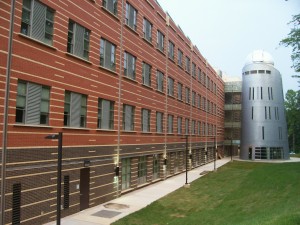
Our meetings on the second Sunday of the Month, The events are normally held evening at 7:00 pm in Research Hall Room 163 on the campus of George Mason University.
Our meetings web page, has directions and additional details.
We look forward to seeing you on Sunday evenings!
Don’t miss out on this, make some travel plans!
A total eclipse of the sun will runs smack through the middle of the USA on August 21, 2017. Plan a car trip, bus ride, or plane trip to the narrow strip of Earth stretching from Salem, OR through to Nashville, TN in which the sun will *completely disappear* for two minutes. (Not many large cities are in the path of the totality, so make your reservations early if you want to observe it from the comfort of civilization.)
If you’ve already got plans, the next total eclipse passing through the USA is on April 8, 2024…
http://en.wikipedia.org/wiki/Solar_eclipse_of_August_21,_2017
Weather forecasts force cancellation of our Public Night again. The Clear Sky chart[1] predicts transparency and seeing mostly as “Too cloudy to forecast”. As of 11:00 local time, all the other forecasts [2][3][4] predict mostly cloudy to overcast skies with a 15 to 50 percent chance of a thunderstorm or rain. Conditions won’t be suitable for astronomical observations.
Hoping for clear skies for the eclipse and our next public night,
R. J. ‘Tree’ Greenwood
Site Coordinator
Please read the C.M. Crockett Page for park details.
The Delta Aquarids is an average shower that can produce up to 20 meteors per hour at its peak. It is produced by debris left behind by comets Marsden and Kracht. The Delta Aquarids is an average shower that can produce up to 20 meteors per hour at its peak. It is produced by debris left behind by comets Marsden and Kracht. The shower runs annually from July 12 to August 23. It peaks this year on the night of July 28 and morning of July 29. The crescent moon will set by midnight, leaving dark skies for what should be a good early morning show. Best viewing will be from a dark location after midnight. Meteors will radiate from the constellation Aquarius, but can appear anywhere in the sky.
Forecast of heavy rains force cancellation of the public night at Great Meadow. We’ll try again in August.
Ray Young
————-
Great Meadow site coordinatorSee front page of NOVAC Site for changes to event.
More information about Great Meadow including directions and parking visit the Great Meadow Site page.

